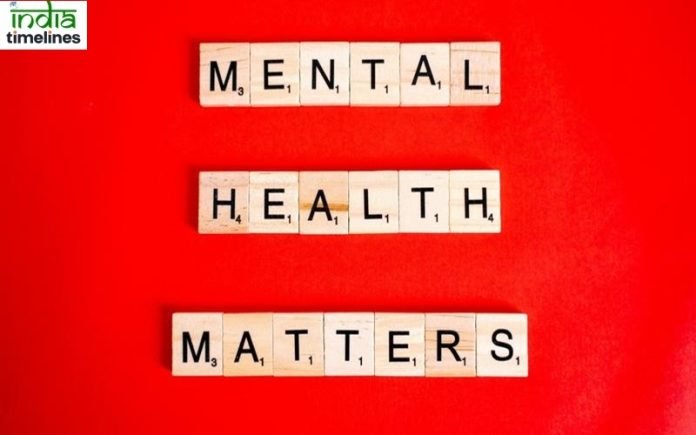
World Mental Health Day, celebrated annually on October 10th, has become an essential platform for raising awareness about mental health issues and promoting mental well-being worldwide. The day serves as a reminder that mental health is as important as physical health, yet it often doesn’t receive the same attention or resources. With an increasing focus on mental health globally, World Mental Health Day 2024 is poised to shine an even brighter spotlight on mental well-being, promoting conversation, awareness, and action to support individuals and communities in need.
The Theme for World Mental Health Day 2024
The theme for World Mental Health Day 2024, chosen by the World Federation for Mental Health (WFMH), is “Mental Health in an Unequal World: Building a Future for All.” This theme underscores the persistent inequalities in access to mental health care, resources, and support systems. It highlights the challenges faced by marginalized and vulnerable populations, including people living in poverty, refugees, and individuals in low-income countries, who often lack the necessary mental health services and support. The goal for 2024 is to foster greater inclusion, equality, and global collaboration to ensure that mental health care reaches everyone, regardless of socio-economic status or geographical location.
The Importance of Mental Health
Mental health is a vital aspect of overall well-being, affecting how individuals think, feel, and act in their daily lives. It influences relationships, decision-making, and the ability to handle stress. Good mental health enables individuals to cope with life’s challenges and make meaningful contributions to their communities.
Despite its importance, mental health issues remain highly stigmatized in many parts of the world. This stigma often discourages individuals from seeking help or talking openly about their mental health challenges. Mental health disorders, including depression, anxiety, and substance abuse, are some of the leading causes of disability globally. According to the World Health Organization (WHO), nearly 1 billion people globally live with a mental health condition, with depression being a significant contributor to the global burden of disease.
Global Mental Health Inequality
One of the key aspects highlighted by the 2024 theme is the growing recognition of mental health inequalities around the world. People living in low- and middle-income countries often face significant barriers to accessing mental health care. These barriers may include a lack of mental health professionals, insufficient funding for mental health services, and the stigma associated with mental illness.
For example, in many African and South Asian countries, mental health facilities and trained professionals are scarce, making it challenging for individuals to receive proper care. In such regions, mental health is often overshadowed by other pressing public health concerns, leading to a disproportionate allocation of resources. The disparities are even more pronounced for vulnerable groups, such as refugees and individuals in conflict zones, who may face additional trauma and stress without access to adequate mental health support.
The Role of Technology in Addressing Mental Health
In recent years, technology has emerged as a powerful tool in bridging the gap in mental health care access. The COVID-19 pandemic accelerated the adoption of telemedicine and digital mental health platforms, enabling individuals to receive therapy, counseling, and support remotely. For many, especially those in underserved or remote areas, technology has been a lifeline, providing access to mental health care that may have been otherwise unattainable.
In 2024, the role of technology in mental health care continues to grow, with the development of mobile apps, virtual therapy sessions, and online support communities. These tools not only increase access but also offer a level of anonymity that can help individuals overcome the stigma often associated with seeking mental health support.
However, it’s important to note that while technology has opened new doors, it also presents challenges. Not everyone has access to digital resources, particularly in low-income regions where internet connectivity may be limited. Additionally, the quality and effectiveness of digital mental health interventions need to be closely monitored to ensure they provide meaningful support.
The Impact of COVID-19 on Mental Health
The COVID-19 pandemic has had a profound impact on mental health globally. The uncertainty, isolation, and loss experienced during the pandemic have led to a surge in mental health issues, including anxiety, depression, and burnout. Many individuals who had never experienced mental health challenges found themselves struggling to cope with the unprecedented circumstances brought on by the pandemic.
In 2024, the lingering effects of the pandemic continue to influence global mental health. Governments, healthcare providers, and organizations are now more aware of the importance of addressing mental health concerns alongside physical health. The pandemic has also highlighted the need for robust mental health care systems that can respond to crises and provide ongoing support for individuals affected by trauma, loss, and stress.
The Role of Governments and Organizations
Governments and organizations worldwide play a critical role in shaping mental health policies, funding, and access to care. In many countries, mental health services are underfunded and under-resourced, leaving individuals without the support they need. However, there has been progress in recent years, with many governments prioritizing mental health in their national health agendas.
The WHO’s Comprehensive Mental Health Action Plan (2013-2030) continues to be a vital framework guiding countries in developing policies and programs to improve mental health outcomes. The plan emphasizes the importance of mental health promotion, prevention of mental disorders, and access to care. Additionally, global organizations such as the United Nations, non-governmental organizations, and private sector companies are increasingly recognizing the importance of mental health and are working collaboratively to address mental health challenges worldwide.
Promoting Mental Health in the Workplace
Workplaces are a critical setting for promoting mental health. Many individuals spend a significant portion of their lives at work, and the work environment can have a profound impact on mental well-being. A supportive, inclusive, and mentally healthy workplace can help individuals thrive, whereas a stressful, toxic, or unsupportive environment can exacerbate mental health issues.
In 2024, more companies are recognizing the importance of mental health in the workplace, implementing mental health programs, employee assistance initiatives, and promoting work-life balance. Mental health awareness campaigns, access to counseling services, and training for managers to recognize the signs of mental health challenges are becoming increasingly common in organizations around the world.
How to Observe World Mental Health Day 2024
There are many ways individuals and organizations can observe and participate in World Mental Health Day 2024. Here are a few suggestions:
- Raise Awareness: Share information about mental health on social media platforms, using hashtags like #WorldMentalHealthDay2024, to spread awareness and encourage conversations about mental well-being.
- Support Mental Health Charities: Consider donating to mental health charities or organizations that provide resources and support for individuals dealing with mental health issues.
- Engage in Mental Health Activities: Attend webinars, workshops, or local events focused on mental health. Many organizations host events to educate people about mental health and promote well-being.
- Check-in with Loved Ones: Use the day as an opportunity to check in with friends, family, and colleagues to see how they’re doing. Offering a listening ear can make a significant difference in someone’s life.
- Prioritize Self-care: Take time for self-care by engaging in activities that promote mental well-being, such as meditation, exercise, or simply taking a break from the stresses of daily life.
Conclusion
World Mental Health Day 2024 serves as a crucial reminder that mental health is a global issue requiring collective action and support. By raising awareness, addressing inequalities, and promoting access to mental health care, we can build a future where mental well-being is prioritized for everyone, regardless of their background or circumstances. This year, let’s commit to fostering a more inclusive and supportive world where mental health is acknowledged and valued as an integral part of human health.






























Some genuinely interesting info , well written and loosely user genial.